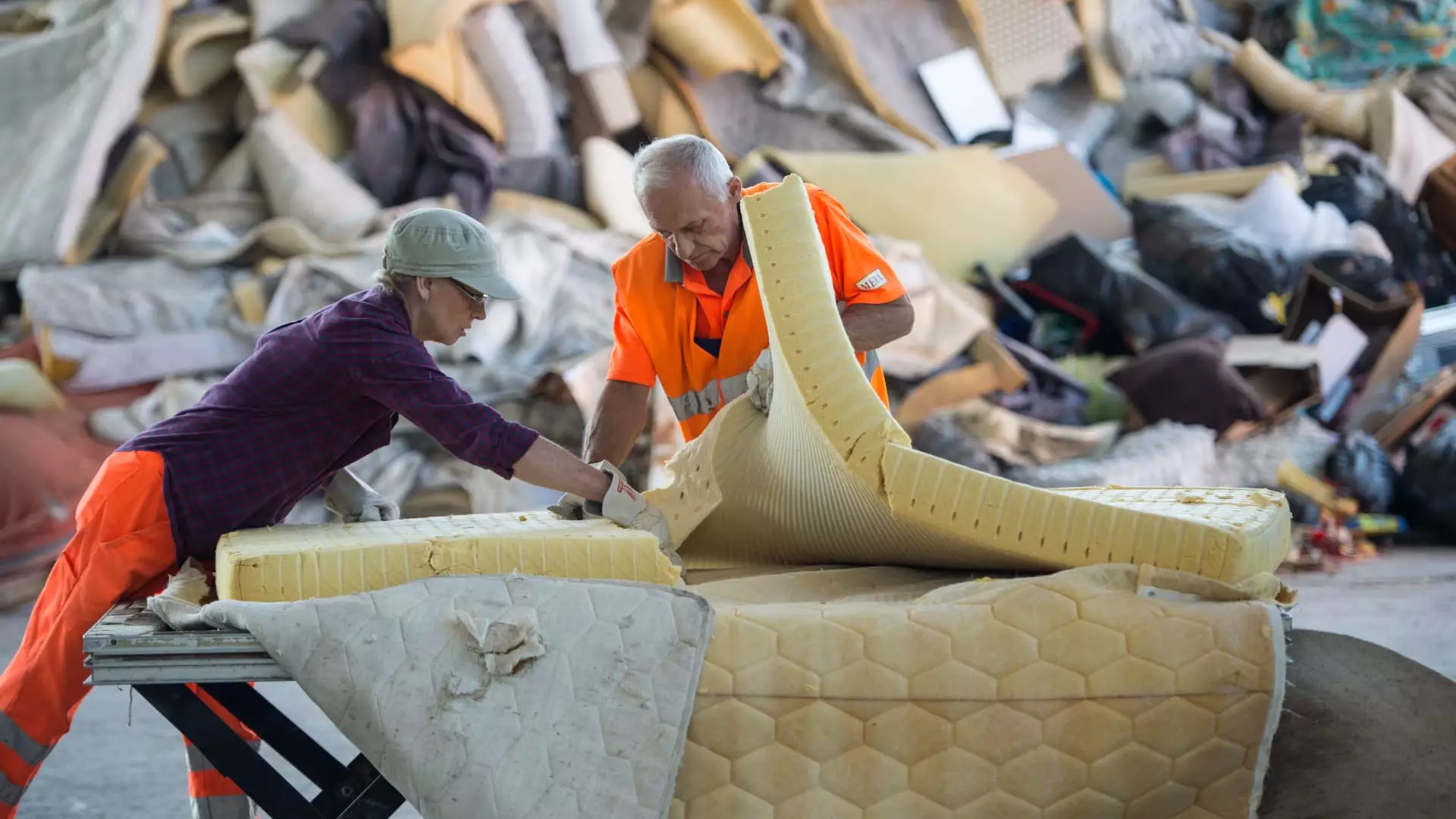In an era increasingly concerned with sustainability, a remarkable trend is emerging within the mattress industry. Several states, notably California, Connecticut, Oregon, and Rhode Island, have initiated a collective approach aimed at reducing mattress waste through imposed fees on purchases. This move not only reflects a growing awareness of environmental issues but also represents a proactive step towards fostering an eco-friendly mattress industry. Consumers in these states are now contributing a small surcharge—ranging from $16 to $23—for every new mattress or box spring they acquire, which funds vital recycling initiatives aimed at diverting waste from overflowing landfills.
This initiative is part of a larger movement encouraging the circular economy, where products are designed with their end-of-life in mind, promoting reuse and recycling rather than disposal. Traditional linear consumption patterns have led to significant waste, with approximately 15 million to 20 million mattresses discarded each year across the United States. As consumers, it is important to recognize the role we play in addressing these growing waste management challenges.
Despite the apparent environmental benefits of recycling, mattress disposal poses several logistical challenges. Currently, the Mattress Recycling Council (MRC) reports that a substantial portion of mattresses—over 75%—is recyclable. With materials such as wood, steel, foam, and fibers readily available for reuse, the focus must shift toward improving recycling infrastructure. Unfortunately, the options for recycling used mattresses are limited, with only around 58 specialized companies available nationwide offering recycling services.
In states without recycling mandates, consumers often face exorbitant fees for disposal services. It is not uncommon for residents to encounter charges exceeding $90 for pick-up, making eco-friendly disposal not only inconvenient but also economically burdensome. This lack of accessible recycling solutions exacerbates the problem, leading many to resort to illegal dumping. By instituting recycling fees that fund designated programs, states are paving the way for broader accessibility to sustainable disposal options.
Oregon’s recent introduction of a “stewardship assessment” fee has been hailed as a critical step in simplifying mattress recycling for its residents. The fee, which amounts to $22.50, is intended to create job opportunities within the recycling sector while establishing more accessible drop-off locations across the state. By integrating recycling programs into daily consumer practices, states are not only addressing waste management issues but also placing responsibility in the hands of the producers and consumers.
The principle of Extended Producer Responsibility (EPR) is central to this initiative, placing the onus on manufacturers to handle the lifecycle of their products, from creation to disposal. According to experts like Reid Lifset from Yale University, such policies foster a more sustainable model of production and waste management. By integrating these programs with existing retail frameworks, legislation provides an innovative funding source crucial for sustaining and developing recycling systems.
The mattress recycling movement exemplifies a growing tendency toward environmental consciousness and sustainable practices across various sectors. As more states like Massachusetts, Maryland, New York, and Virginia consider adopting similar programs, the potential impact of widespread participation could significantly alter the landscape of waste management nationwide.
Through consistent funding and community education, these initiatives not only enhance public awareness of recycling but also encourage manufacturers to design products that are easier to dispose of sustainably. This shift can lead to innovative design practices that embrace sustainability, ultimately contributing to a more environmentally responsible economy.
As consumers, our participation in these recycling programs is vital to their success. By accepting these small fees as part of our purchasing decision, we are contributing to a much larger effort that transcends mere waste management. We are supporting a transition towards a sustainable economy where all products, including sometimes overlooked household items like mattresses, are designed for longevity and recyclability.
Together, through informed purchasing and advocacy for environmental responsibility, consumers can catalyze significant change within the mattress industry and beyond, driving the movement toward a more sustainable future. Embracing this shift not only benefits the environment but also enhances community well-being, fostering a culture of sustainability that can inspire further initiatives across various sectors.

